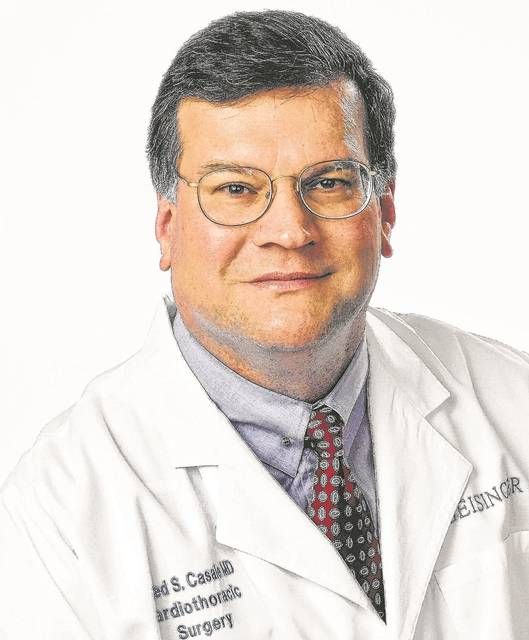Click here to subscribe today or Login.
Some important medical issues have popped up in January including the Coronavirus from China and a World Health Organization study about smoking’s risk in those having operations. These certainly deserve attention of their own, and I’ll get to them soon, but I would be remiss if I didn’t call your attention to January as Cervical Cancer Awareness Month.
According to the Centers for Disease Control and Prevention, 12,984 new cases of cervical cancer were reported in the United States in 2016, the most recent year for which data is available, and 4,188 women died of the disease. Among every 100,000 American women, eight new cervical cancer cases were reported, and two died.
The cervix, the lower region of the uterus, connects the uterus (womb), to the vagina along the birth canal, allowing for passage between the two cavities.
While all women are at risk for cervical cancer, it is diagnosed most often in women older than 30, with persistent infection from specific strains of human papillomavirus (HPV) being the leading cause of the disease. HPV is a common viral infection that is spread through sexual contact. About 75 percent of people will have HPV at some time in their lives, and most will never experience symptoms or complications.
But for those women in whom HPV produces the most serious complication, cervical cancer, when found early, is highly treatable with many survivors leading long and good-quality lives. And it’s also highly preventable thanks to available screenings tests and a vaccine.
A Pap test, recommended every three years for women older than 21, is one of the best ways to screen for cervical cancer. Pap tests examine cells in the vagina and cervix to determine the presence of cancer or pre-cancerous growths.
The same cells are examined during screenings for HPV and cervical cancer, so patients can have both tests done simultaneously. Co-testing allows physicians to determine whether a patient has HPV and whether it has led to cellular changes that could be a sign of cervical cancer.
Among women in their 20s, for whom HPV is common, co-testing is not always recommended. Most providers will order an HPV test if a patient received an abnormal Pap result. But for women in their 30s and beyond, co-testing is recommended every five years.
If pre-cancer is found during a screening, treatment can stop it before it becomes cervical cancer, and if cervical cancer if found early, it can be prevented from spreading.
The HPV vaccine is currently the most effective treatment in preventing cervical cancer. It targets HPV strains that cause about 90 percent of cervical cancers, and it is recommended for men and women since it can safeguard women from cervical cancer and can prevent men from spreading HPV.
Research suggests the body’s immune response to the vaccine is strongest in the preteen years, so the vaccine works best when administered to children ages 11 and 12 in two doses, while three doses are necessary for people older than 14. I remember how odd it felt to have Kate vaccinated during middle school to prevent a disease related to sex. Thanks to some great pediatric advice, Mary’s unwavering good sense and the fact that I, eventually, do usually respond to logic and evidence, Kate asked that we proceed.
Two new recommendations for HPV vaccine were approved by the Advisory Committee on Immunization Practices in June 2019. “Catch-up” vaccinations, for those who were not immunized as preteens, are now recommended for males through age 26. The new recommendation now aligns with guidelines for “catch-up” vaccination in women.
And for folks between the ages of 27 and 45, the public health benefit is minimal, so “catch-up” vaccination is only recommended based on shared clinical decision making, meaning a discussion of benefits and risks should take place between provider and patient.
Diagnostics and preventive medicine have come to the forefront in the way we mitigate and treat a multitude of conditions in healthcare today, so it’s not surprising that these two elements are paramount in our approach to HPV and cervical cancer. If you’re a young adult or a parent with children approaching preteen years, ask your family physician about HPV vaccines and screenings.
Dr. Alfred Casale, a cardiothoracic surgeon, is chief medical officer for surgical services for Geisinger and chair of the Geisinger Heart Institute. Readers may write to him via [email protected]. For information on alternative treatment for atrial fibrillation, visit https://geisinger.cc/2E2N8n8








